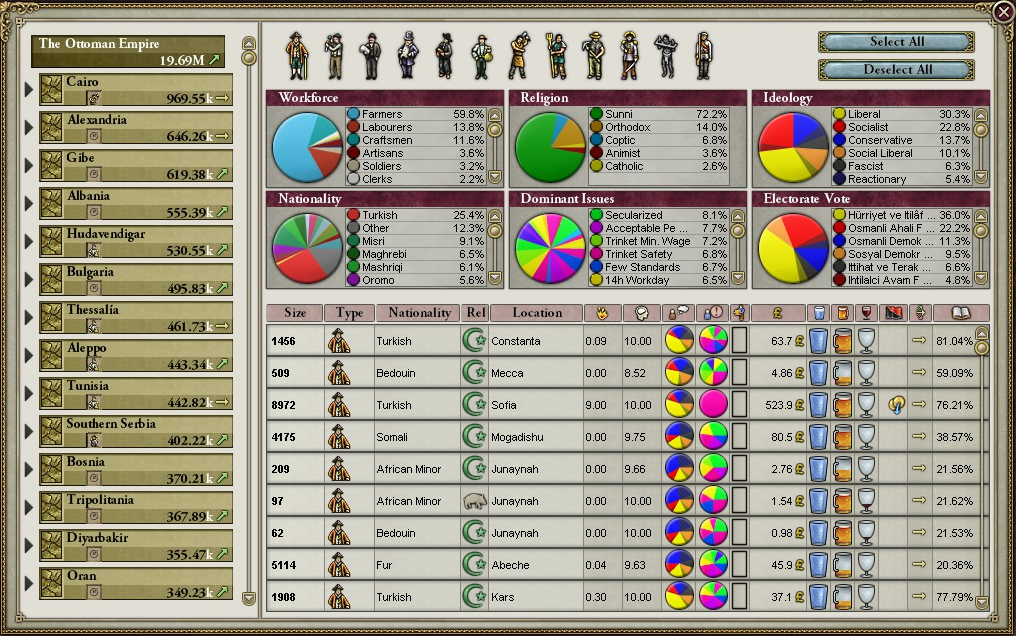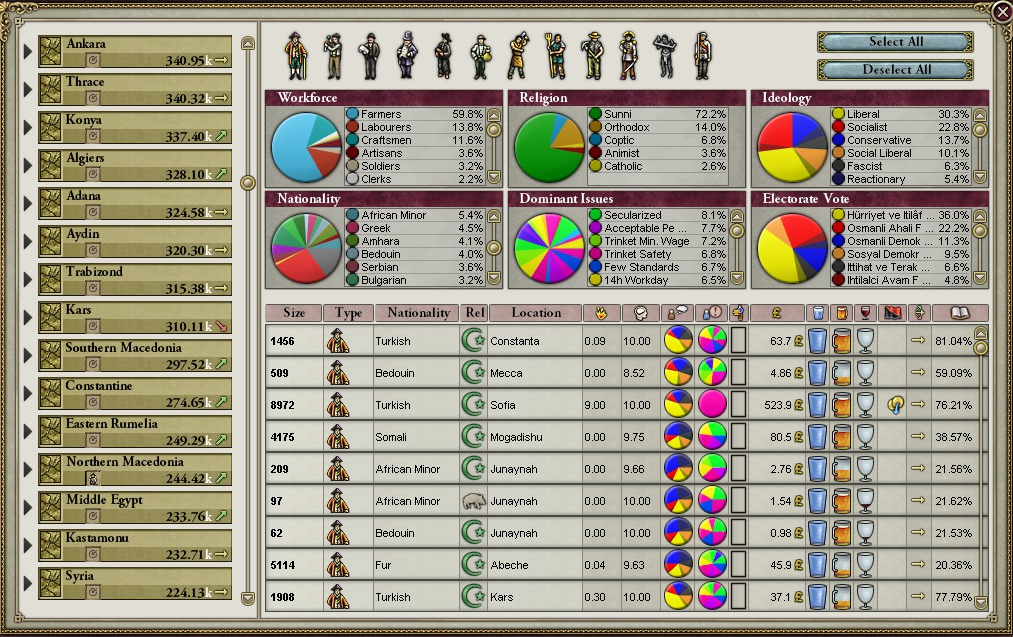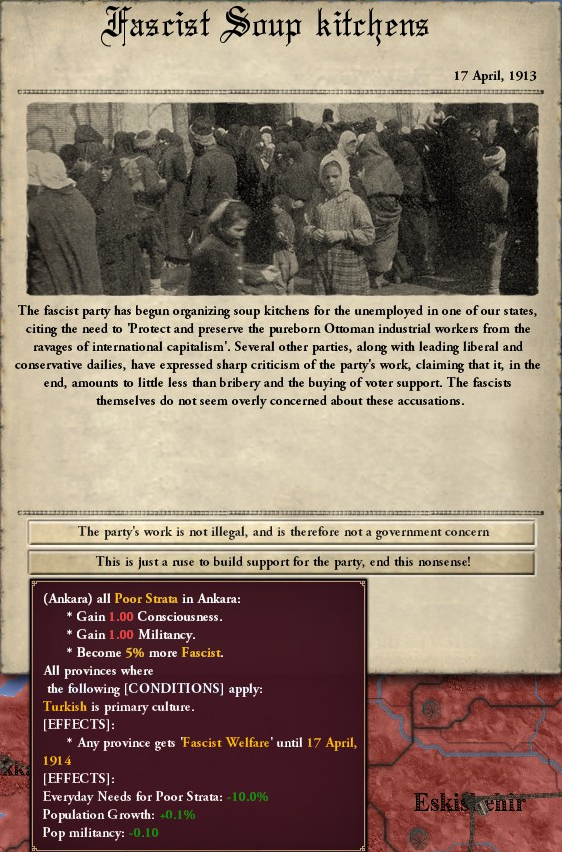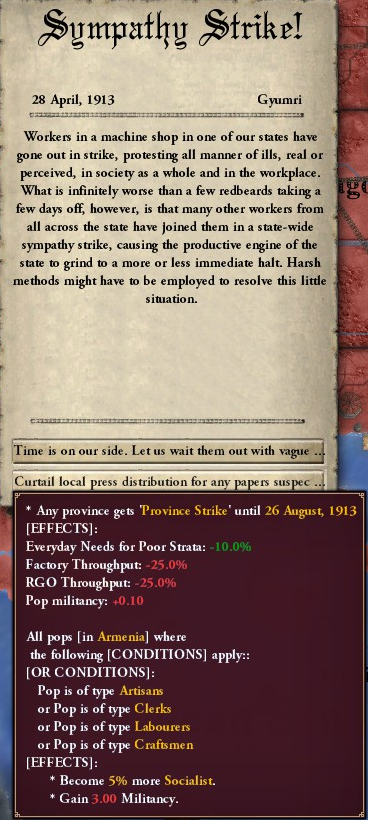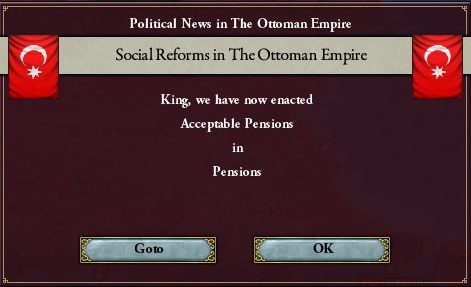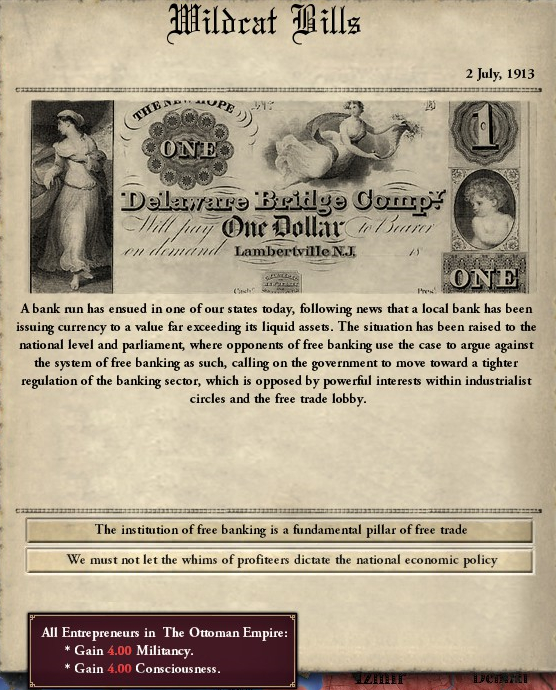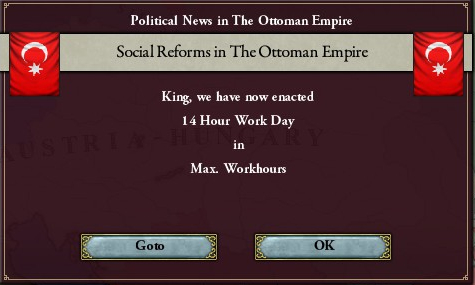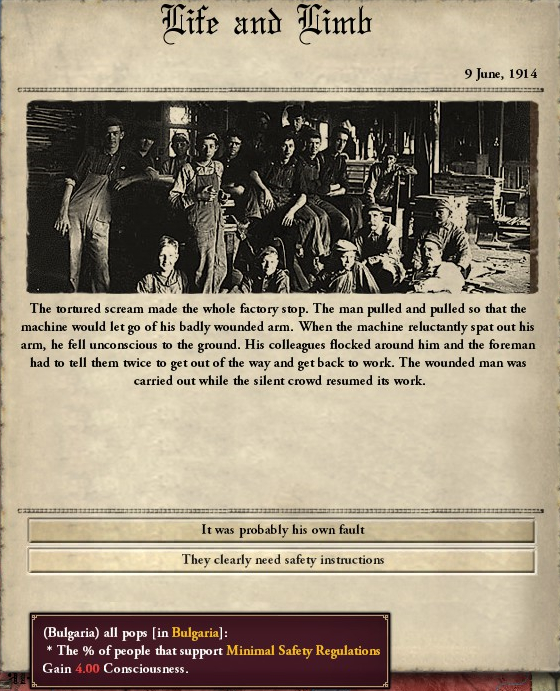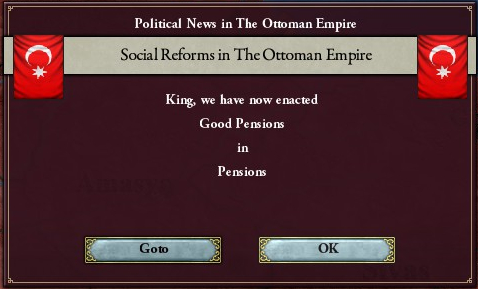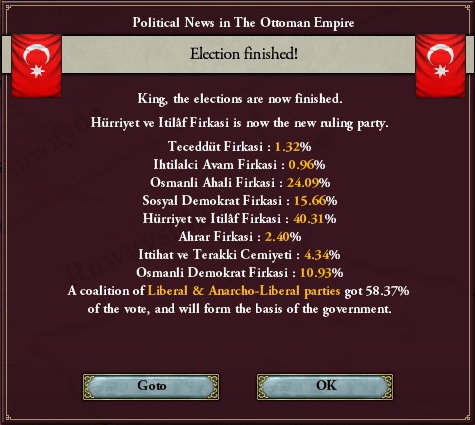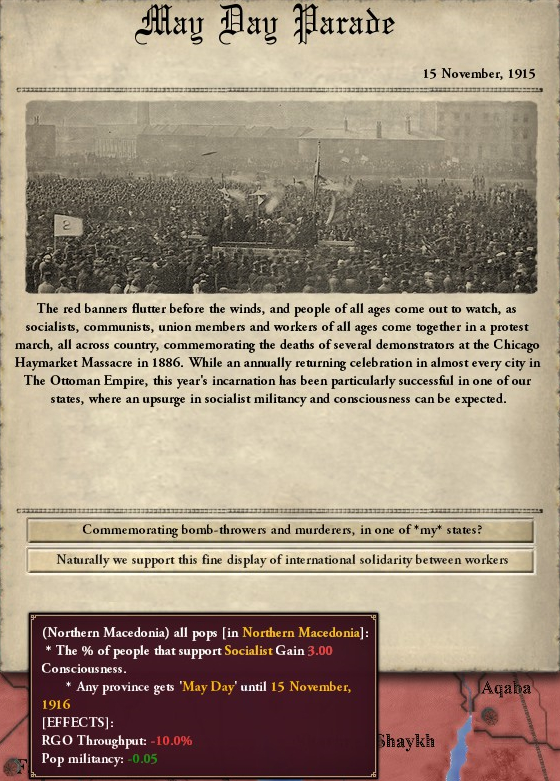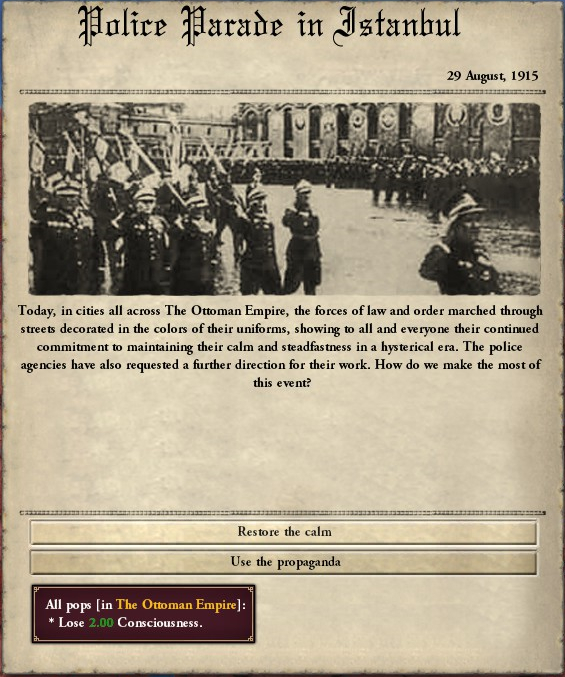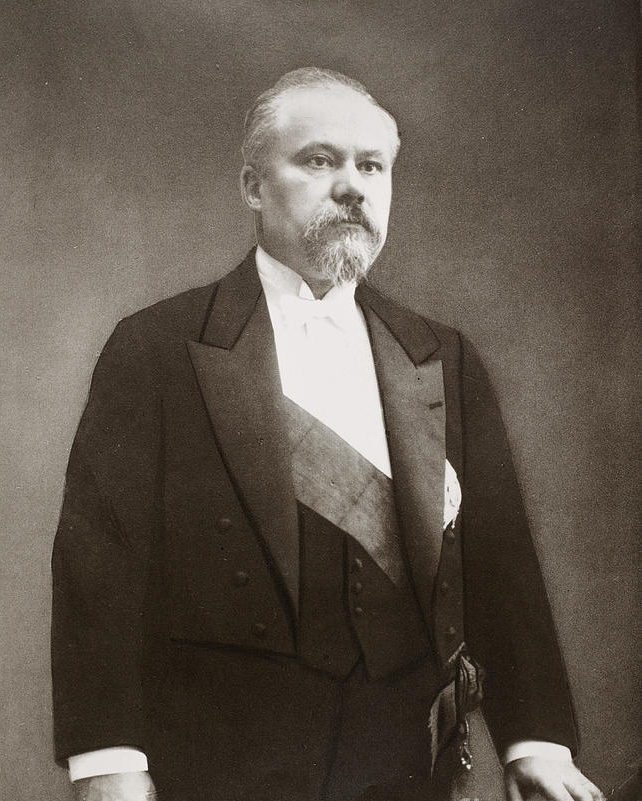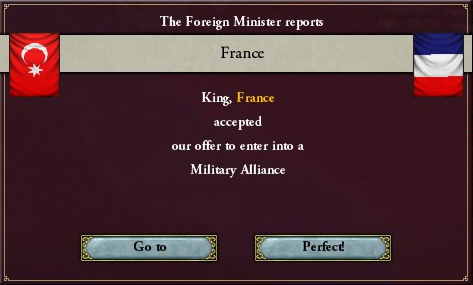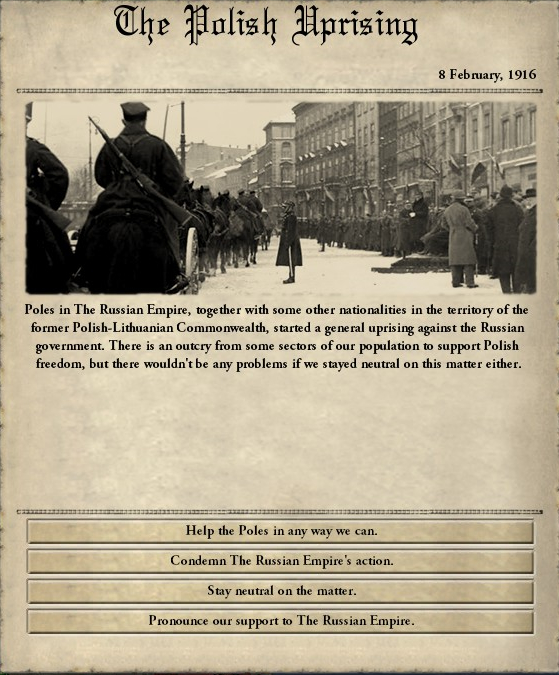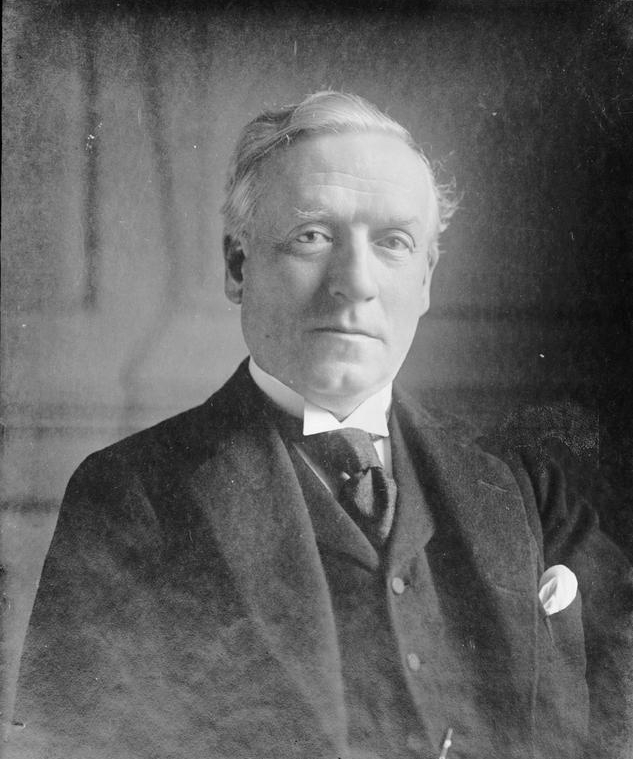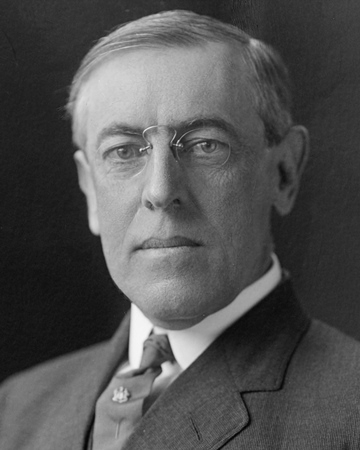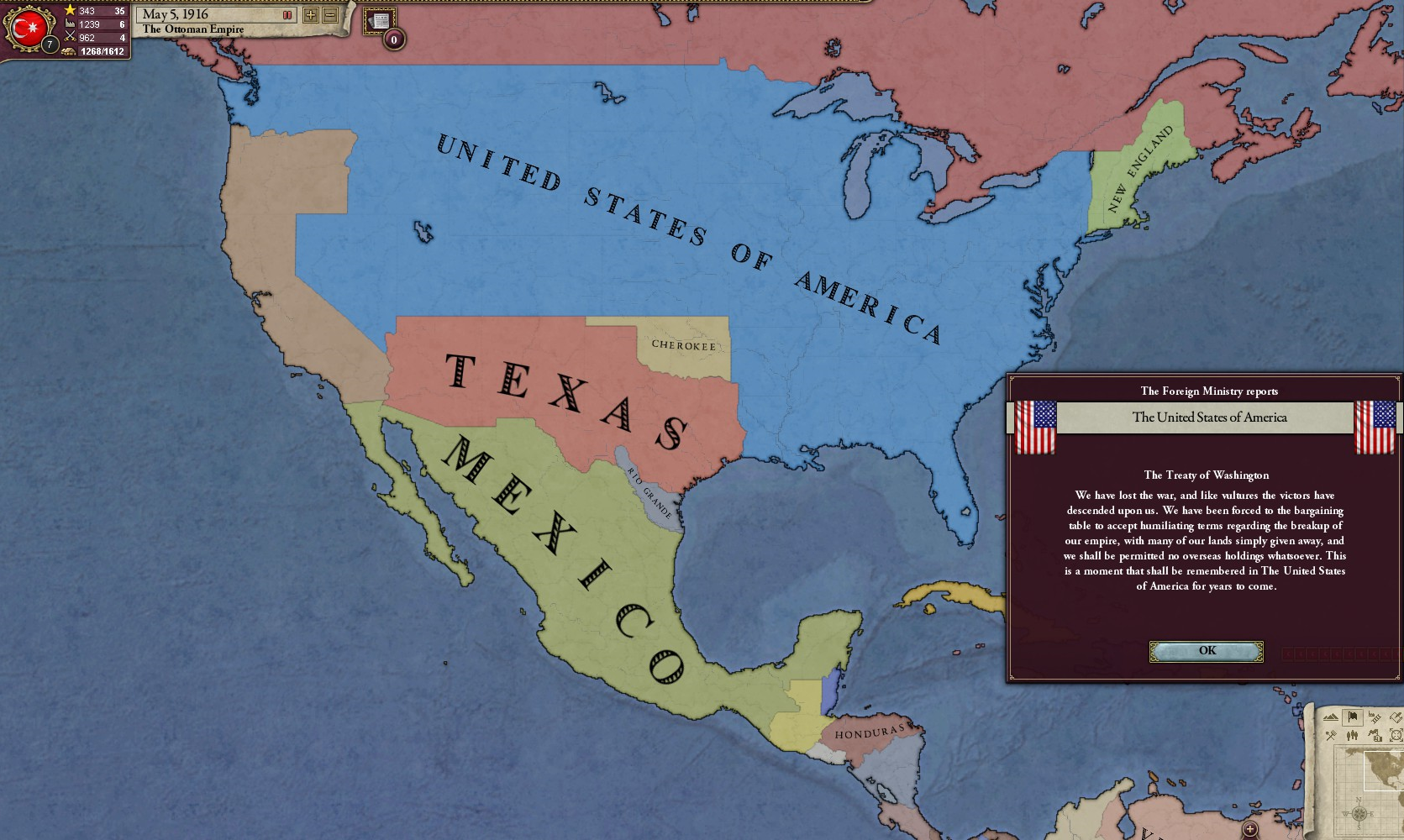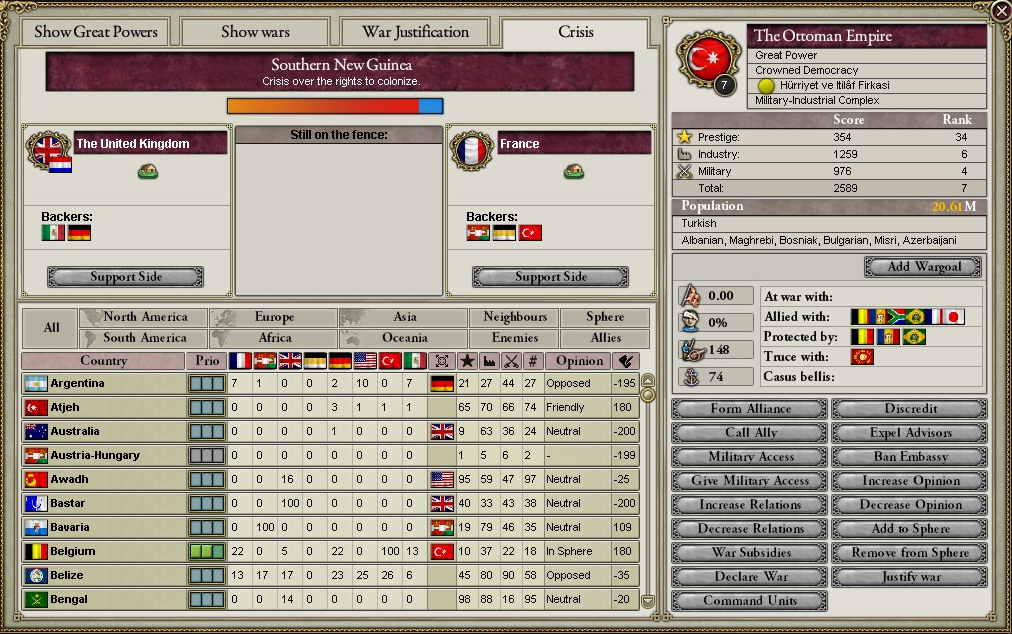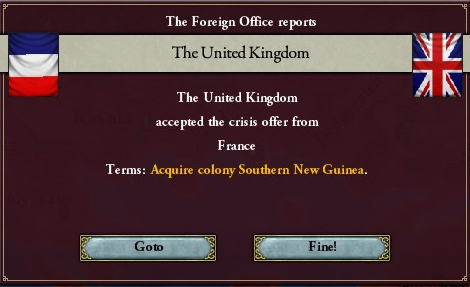I would not wish to be Germany's Chief of Staff about now. Staying well out of it.
Oh dear, Germany are in for it now...
The Sublime Porte is best to remain above such petty disagreements.
Whatever it is that Germany's President is smoking, I want it.
The Germans are certainly enjoying a very optimistic attitude, yeah...
Indeed, the transition to democracy may have been achieved, but there are threats to it on both fronts, and moving too far in one direction is bound to create a backlash in the other.The extremists on both sides of the aisle are getting more and more strident. On the one hand, clamping down on one faction or the other may drive them into open revolt; on the other, if the government does nothing, they might well erode the public's faith in their leaders and gain much stronger bases of support, which would have dire consequences in the long run. Either way, I wouldn't want to be standing under the sword of Damocles that is almost certainly dangling over the Porte's head.
I almost have to admire Germany's pluck in thinking that they can take on another set of Great Powers so soon after losing the first Great War, but I have a feeling things will not go well for them. (Of course, I could be wrong -- maybe the Americans will finally cross the sea, swoop in to rescue the Irish, then use that as a springboard to dictate a new Pax Americana while brave Doughboys march through the streets of London and Paris. One can dream...)
I would be surprised if the American-German Alliance was able to turn things around so soon after the first, but I suppose stranger things have happened in history
Sadly we have no easy target neighbours, the web of alliances runs extremely deep - and the hypocritical liberals in the British Empire are only too happy to guarantee these fascist regimes as long as they keep pressuring our borders.Maybe we should find a small unguaranteed neighbour to keep the minds of people busy
Not that I'd cherish a People's Socialist Empire of Ottoman
Yes, we might be outside of the war, but we're certainly not in the clear.That's it, let the other Great Powers exhaust themselves. Though the Sublime Porte is going to be in for a ride all its own, methinks.
The war-score is 41% in Britain's favour, so it doesn't look too good for the Irish at the momentDid I read that right? Are the Irish actually winning against Great Britain all by themselves?


